Different Types of Bath Towels: Absorbent & Soft Towel Guide
Strategic Textile Selection: Understanding Advanced Towel Varieties
In the competitive B2B landscape of hospitality, healthcare, and wellness industries, the choice of textile solutions directly impacts operational efficiency, cost management, and client satisfaction. Beyond mere aesthetics, the technical specifications and material science behind textile products, especially towels, are paramount. This comprehensive analysis delves into the critical aspects of selecting high-performance textiles, focusing specifically on the different types of bath towels available, their manufacturing intricacies, and their strategic application.
Understanding the nuances of various towel constructions and materials is essential for procurement professionals and facility managers aiming to optimize their textile inventory. From fiber origin to advanced finishing techniques, each stage of production contributes to the towel's ultimate performance characteristics, including absorbency, drying time, durability, and tactile feel. Our exploration provides a technical deep-dive, offering insights into industry best practices and innovative solutions designed for demanding commercial environments.
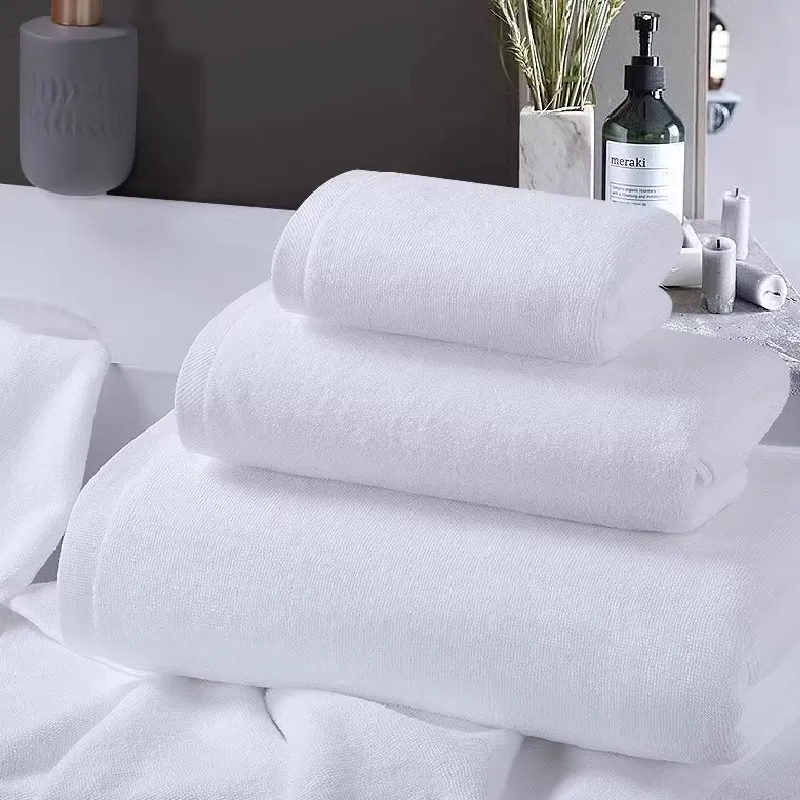
The Advanced Manufacturing Process of High-Performance Towel Textiles
The production of commercial-grade towels is a complex, multi-stage engineering process, extending far beyond simple weaving. Precision and adherence to stringent quality controls are vital to ensure the final product meets the rigorous demands of B2B applications. The process generally encompasses:
- Fiber Sourcing & Preparation: Selection of raw materials such as long-staple cotton (e.g., Egyptian, Pima), bamboo fibers for softness and sustainability, or advanced microfibers for superior quick-dry properties. Fibers undergo ginning, cleaning, and carding to align and prepare them for spinning.
- Yarn Spinning: Fibers are spun into various yarn counts and twists. Ring-spun yarns offer superior strength and softness, while open-end yarns are more cost-effective. The choice directly impacts towel durability and absorbency.
- Weaving (Terry Loop Formation): Specialized power looms weave the yarn into fabric. For terry towels, two warp beams are used: a ground warp for the base fabric and a pile warp that creates the characteristic loops. The length, density, and uniformity of these loops are critical for absorbency and plushness. Common weave types include Terry, Waffle, and Velour (sheared terry for a velvety feel).
- Dyeing & Bleaching: Fabrics are dyed using reactive or vat dyes for superior colorfastness. Bleaching processes ensure uniform whiteness for healthcare and hospitality sectors. Adherence to OEKO-TEX Standard 100 ensures the absence of harmful substances.
- Finishing Treatments: This stage is critical for performance. Treatments include:
- Softening: Chemical treatments enhance tactile feel without compromising absorbency.
- Quick-Dry Enhancements: Hydrophilic finishes or specific fiber blends accelerate moisture wicking and evaporation.
- Anti-microbial Finishes: For healthcare and fitness applications, inhibiting bacterial growth.
- Sanforizing: Pre-shrinking to minimize fabric shrinkage after washing, crucial for maintaining dimensional stability.
- Cutting & Sewing: Large rolls of finished fabric are cut to precise dimensions and hemmed with robust stitching to prevent fraying and ensure longevity under repeated commercial laundering.
- Quality Control & Packaging: Each batch undergoes rigorous testing for GSM (Grams per Square Meter), absorbency rate, tensile strength, colorfastness, and dimensional stability, typically conforming to ISO 9001 and AATCC standards. Products are then inspected, folded, and packaged for bulk shipment.
Service Life & Target Industries: The service life of commercial towels is engineered for extensive use, often exceeding 200 industrial wash cycles. This extended durability is essential for target industries such as Hospitality (hotels, resorts, spas), Healthcare (hospitals, clinics, nursing homes), and Sports & Fitness facilities (gyms, athletic clubs), where high turnover and stringent hygiene protocols necessitate robust textile solutions. Advantages in these scenarios include energy saving through faster drying, reduced chemical consumption due to inherent material properties, and superior corrosion resistance to harsh laundering agents, thereby lowering total cost of ownership.
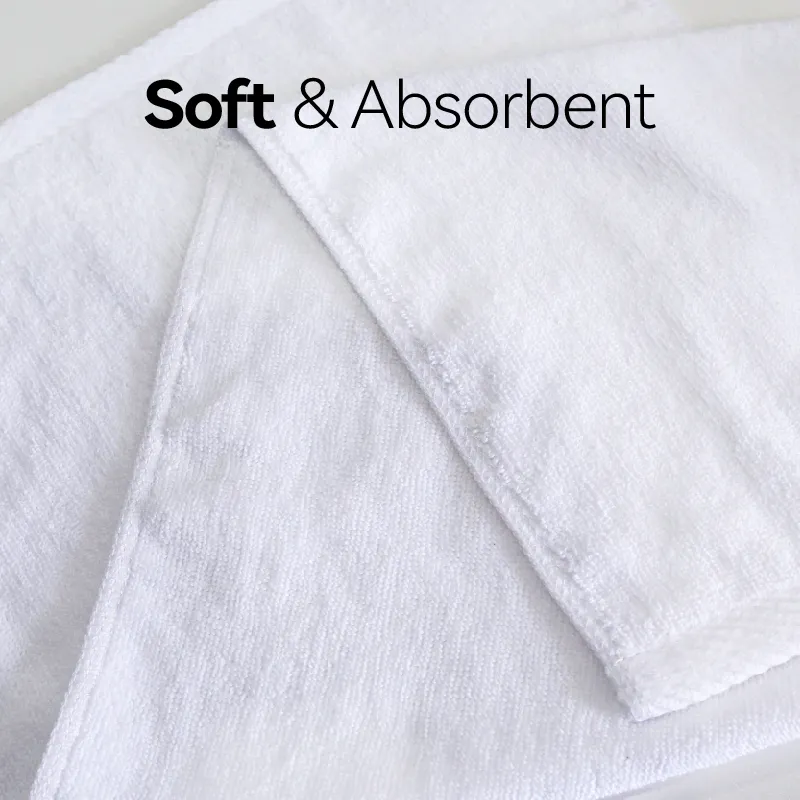
Industry Trends and Material Innovations in Towel Production
The textile industry is continuously evolving, driven by consumer demand for performance, sustainability, and technological integration. Key trends impacting the production and selection of different types of bath towels include:
- Sustainability & Eco-Friendly Fibers: A growing emphasis on organic cotton, recycled polyester blends, bamboo, and TENCEL™ Lyocell fibers. These materials offer reduced environmental impact, often coupled with enhanced softness and absorbency. Certifications like GOTS (Global Organic Textile Standard) are increasingly sought after.
- Advanced Performance Finishes: Beyond basic quick-dry properties, manufacturers are incorporating permanent antimicrobial agents (e.g., silver ions), odor-resistant technologies, and stain-release treatments directly into the fiber or fabric structure. This enhances hygiene and prolongs freshness.
- Microfiber Dominance: For specific applications, ultra-fine microfiber towels (often polyester/polyamide blends) offer exceptional absorbency, quick-drying capabilities, and lint-free performance, making them ideal for cleaning and detailing tasks, as well as high-traffic fitness environments.
- Smart Textile Integration (Emerging): While still nascent for towels, future innovations may include embedded sensors for tracking usage, laundry cycles, or even real-time moisture levels, though practical applications in B2B towels are still in development.
- Focus on GSM Optimization: Rather than simply higher GSM, the trend is towards optimized GSMs that balance plushness with drying efficiency and durability for commercial laundering. This involves smarter weave structures and fiber choices to achieve perceived luxury without excessive weight.
These innovations ensure that textile solutions remain at the forefront of operational excellence and user experience, aligning with modern B2B demands for efficiency, hygiene, and environmental responsibility.
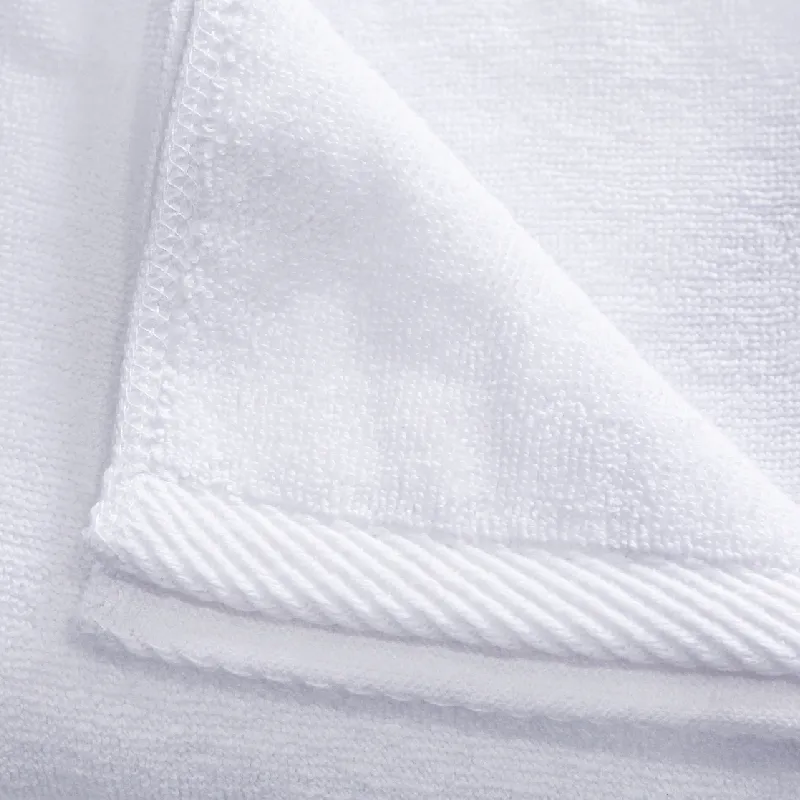
Technical Specifications and Performance Metrics
Selecting the correct towels for B2B applications requires a thorough understanding of their technical specifications. These parameters dictate performance, durability, and cost-effectiveness over their service life.
Key Performance Indicators (KPIs):
- GSM (Grams per Square Meter): A measure of towel density. Higher GSM (e.g., 600-900 GSM) typically indicates a thicker, more luxurious, and absorbent towel, often preferred for premium hospitality. Lower GSM (e.g., 300-450 GSM) signifies lighter, quicker-drying towels suitable for gyms or high-volume healthcare.
- Fiber Staple Length: Longer cotton fibers (e.g., Pima, Egyptian cotton) produce stronger, smoother, and more absorbent yarns, leading to less linting and greater durability.
- Absorbency Rate: Measured by the amount of water a towel can hold relative to its weight and the speed at which it absorbs moisture. Influenced by fiber type, weave, and finishing.
- Drying Time: Crucial for operational efficiency and energy consumption in commercial laundries. Quick-dry treatments and specific fiber blends significantly reduce drying cycles.
- Tensile Strength: The towel's resistance to tearing or breaking under tension, a critical indicator of durability and longevity under repeated industrial washing.
- Colorfastness: The ability of dyed towels to retain their color without fading or bleeding, especially when subjected to hot water and chemical detergents.
- Loop Pile Density & Uniformity: Denser, more uniform loops contribute to superior absorbency and a plush feel, while ensuring the towel maintains its structure over time.
Product Specification Table: Cheap Quick Dry White Hand Towels Bathroom Sets
| Parameter | Specification | Benefit for B2B |
|---|---|---|
| Product Name | Cheap Quick Dry White Hand Towels Bathroom Sets | Cost-effective, high-volume utility |
| Material Composition | 100% Cotton, ring-spun for durability | Natural feel, good absorbency, institutional-grade strength |
| GSM (Grams per Square Meter) | Approx. 400-450 GSM | Optimized for quick drying, reduced laundry energy consumption |
| Color | Pure White (bleach-friendly) | Universal appeal, easy stain removal, maintains hygiene standards |
| Weave Type | Terry Loop | Classic absorbent texture, soft hand-feel |
| Dimensions (Hand Towel) | Standard 16" x 28" (40cm x 71cm) | Industry standard, fits most bathroom set requirements |
| Drying Performance | Engineered for 30% faster drying than traditional cotton towels | Significant operational cost savings in laundry cycles |
| Durability | Reinforced hems, designed for 200+ commercial wash cycles | Extended service life, reduced replacement frequency |
| Certifications | OEKO-TEX Standard 100 (material safety) | Assurance of no harmful substances, enhanced user trust |
These detailed specifications allow B2B buyers to make informed decisions that align with their operational needs, budget constraints, and client expectations. The careful balance of material, weave, and finishing defines the ultimate value proposition of commercial textile products.
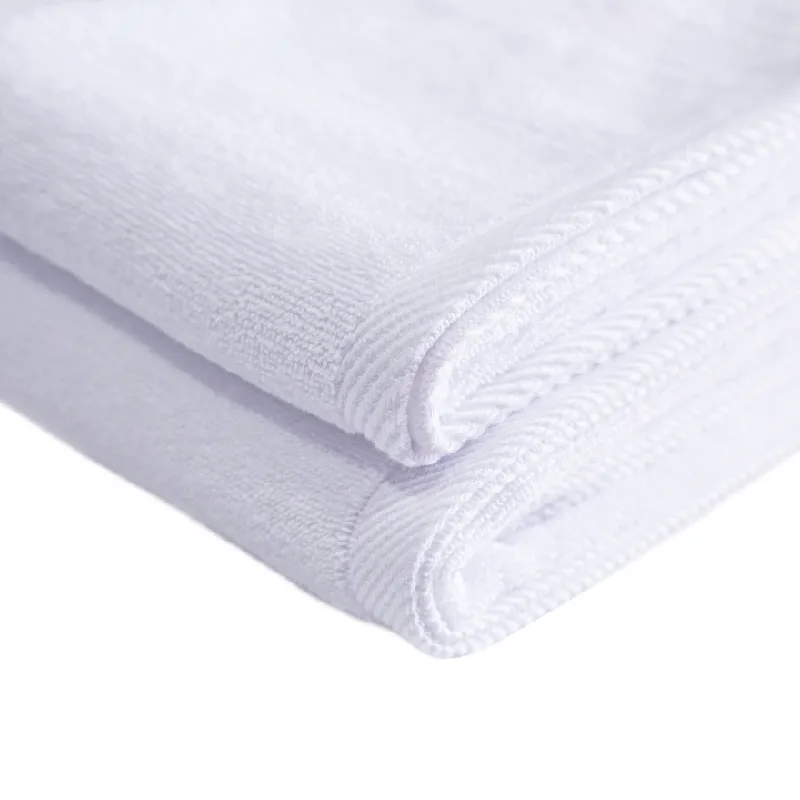
Application Scenarios and Operational Advantages
The selection of different types of towels and their uses is highly specialized across various industries, each demanding distinct performance attributes. Optimizing towel deployment offers significant operational advantages.
Key Application Scenarios:
- Hospitality (Hotels, Resorts, Spas): Requires a balance of luxury, durability, and cost-effectiveness. Plush, high-GSM bath towels for guest rooms, alongside quick-dry hand towels and washcloths. Pool and spa areas demand highly absorbent, bleach-safe options. The goal is enhanced guest experience and efficient laundering.
- Healthcare (Hospitals, Clinics, Nursing Homes): Paramount importance on hygiene, durability, and robust construction to withstand harsh industrial laundering and sanitization protocols. White, low-lint, easily identifiable towels are critical for patient care, staff use, and cleaning. Antimicrobial finishes are a distinct advantage.
- Fitness & Wellness Centers (Gyms, Athletic Clubs): Focus on quick-drying, highly absorbent, and odor-resistant towels for members and staff. Microfiber towels are often preferred here due to their superior moisture-wicking and fast-drying properties, contributing to a cleaner and more sanitary environment.
- Industrial & Commercial Cleaning: High-performance microfiber cloths and towels are essential for streak-free cleaning, dusting, and polishing in diverse commercial settings, offering superior particle entrapment and liquid absorption.
Operational Benefits:
- Reduced Laundering Costs: Quick-dry towels significantly decrease dryer cycle times, leading to lower energy consumption (up to 25-30% reduction in electricity/gas) and increased throughput in commercial laundries.
- Extended Product Lifespan: High-quality materials and reinforced construction minimize fraying and deterioration, reducing the frequency of textile replacement and associated procurement costs.
- Enhanced Hygiene: Antimicrobial treatments and bleach-friendly materials facilitate superior sanitization, crucial for healthcare and public-facing environments.
- Improved Guest/Client Satisfaction: Luxurious feel, consistent absorbency, and pristine appearance contribute directly to a positive user experience, fostering brand loyalty.
- Streamlined Inventory Management: Standardized, durable products simplify procurement and reduce the complexity of managing diverse textile inventories.
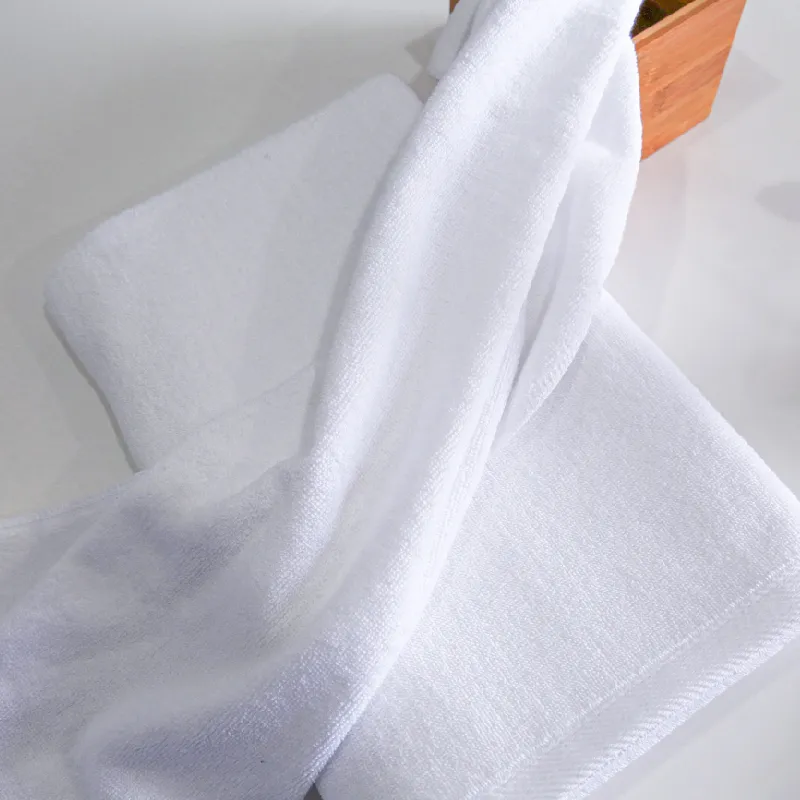
Vendor Comparison and Quality Assurance in Textile Procurement
When sourcing different types of towels in hotel or healthcare settings, a rigorous vendor comparison is crucial. It extends beyond initial pricing to encompass long-term value, reliability, and support. Key differentiators include:
- Material Sourcing & Transparency: Reputable vendors provide clear documentation on fiber origin, ethical sourcing practices, and material certifications (e.g., GOTS, OEKO-TEX).
- Manufacturing Precision: Assess a vendor's manufacturing capabilities, including loom technology, dyeing consistency, and finishing expertise. Tours or detailed process descriptions can offer insights.
- Certification & Compliance: Verify adherence to international standards like ISO 9001 (Quality Management), ISO 14001 (Environmental Management), and specific textile testing protocols (e.g., AATCC, ASTM).
- Customization Capabilities: The ability to provide bespoke solutions in terms of size, color matching, weave, and branding (embroidery, Jacquard weaving) is a significant advantage.
- Lead Times & Fulfillment: A robust supply chain and efficient logistics are critical for timely delivery, especially for large-volume orders or during peak seasons.
- After-Sales Support & Warranty: Comprehensive warranty policies and responsive customer service for addressing potential defects or performance issues are indicators of a reliable partner.
Comparative Analysis: Standard Cotton vs. Premium Quick-Dry Microfiber Towels
| Feature | Standard 100% Cotton Terry | Premium Quick-Dry Microfiber (e.g., 80/20 Poly/Nylon) | B2B Application Suitability |
|---|---|---|---|
| Primary Material | Natural Cotton Fibers | Synthetic Microfibers (Polyester/Polyamide) | Both, depending on specific needs |
| Absorbency | Good (absorbs up to 20x its weight) | Excellent (absorbs up to 7x its weight, but much faster) | Microfiber for quick drying; Cotton for plush feel |
| Drying Time | Moderate to Long | Significantly Faster (up to 3x quicker) | Microfiber for high-volume, cost-saving laundries |
| Softness/Feel | Natural, plush, soft with use | Smooth, often "grippy" when dry, very soft when wet | Cotton for traditional luxury; Microfiber for functionality |
| Durability (Commercial Use) | Very Good (150-200+ washes) | Excellent (250-300+ washes with proper care) | Both are durable, microfiber can sometimes exceed |
| Laundering Costs | Higher due to longer drying times | Lower due to reduced drying times | Microfiber offers long-term operational savings |
| Linting | Moderate (especially when new) | Minimal to None | Microfiber preferred for lint-sensitive environments |
| Initial Cost | Varies, can be more expensive for high-GSM premium cotton | Generally competitive, offers better value per wash cycle | Assess total cost of ownership, not just initial price |
Customized Solutions and Brand Integration
For B2B entities, particularly within the hospitality sector, the ability to customize towels is a key factor in reinforcing brand identity and enhancing the client experience. Customization options extend beyond simple color choices:
- Embroidered Logos: High-quality embroidery of corporate logos or brand motifs provides a premium, personalized touch to bath, hand, and face towels. This is particularly popular in hotels, spas, and corporate gifting.
- Custom Sizes and Weights (GSM): While standard sizes exist, some luxury establishments or specialized healthcare facilities may require specific dimensions or GSMs to fit unique fixtures or performance requirements.
- Pantone Color Matching: Ensuring towels perfectly match a brand's specific color palette for a cohesive aesthetic across all guest touchpoints.
- Jacquard Weaving: Incorporating brand patterns or logos directly into the weave of the towel fabric, offering a sophisticated and durable branding solution. This is a hallmark of high-end establishments.
- Specialized Finishes: Tailoring quick-dry, antimicrobial, or extra-softening treatments to meet precise operational demands or guest expectations.
- Bundling & Presentation: Customized packaging solutions for towel sets, enhancing the unboxing experience for guests or providing a professional presentation for retail or gifting.
These bespoke solutions ensure that every textile product aligns perfectly with the brand's image and operational requirements, transforming a utilitarian item into a powerful brand ambassador. The capability to offer comprehensive customization is a hallmark of an advanced textile partner.
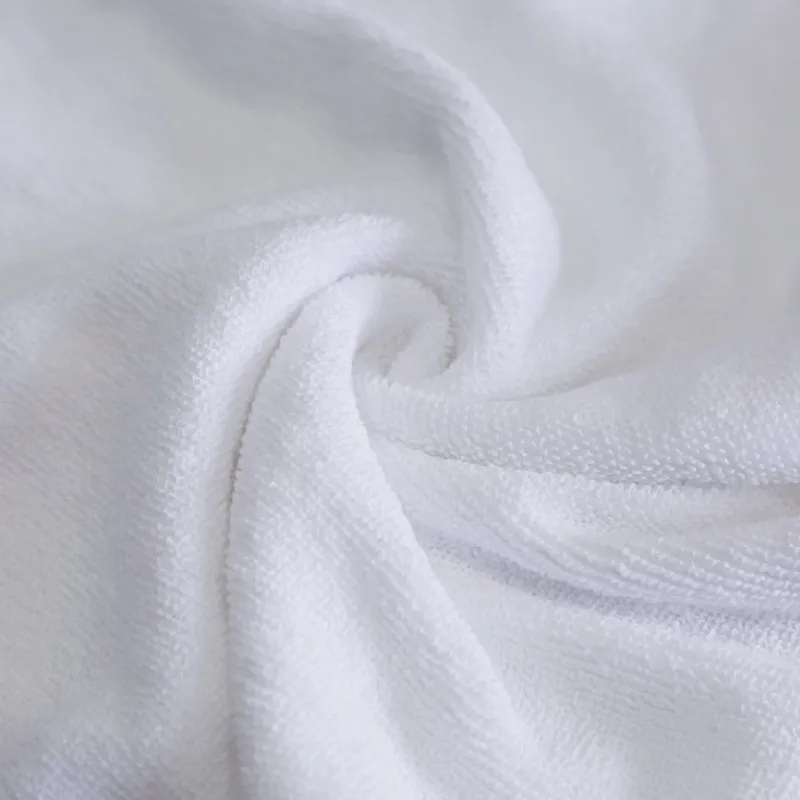
Application Case Studies in Textile Deployment
Real-world application demonstrates the tangible benefits of strategic towel procurement and superior product performance.
Case Study 1: Luxury Hotel Chain Optimizes Laundry Operations
A prominent international hotel chain sought to reduce operational expenses associated with laundering their vast inventory of guest towels, without compromising on luxury feel. They transitioned from high-GSM, traditional cotton towels (650 GSM) to a specially engineered 550 GSM quick-dry cotton blend with enhanced absorbency. The new towels retained the desired plushness and aesthetic while significantly cutting drying times.
- Challenge: High energy consumption and long cycle times in their commercial laundries. Frequent towel replacement due to wear from intensive washing.
- Solution: Implementation of quick-dry, ring-spun cotton bath and hand towels featuring a unique hollow-core fiber technology.
- Results:
- 30% Reduction in Drying Time: Directly translated to an estimated 20% annual energy saving in laundry operations.
- 15% Increase in Towel Lifespan: Reinforced construction and optimized weave withstood more wash cycles, reducing replacement costs by approximately 12% per year.
- Enhanced Guest Satisfaction: Feedback indicated guests appreciated the towels' softness and quick absorption, maintaining the luxury experience.
Case Study 2: Regional Healthcare Provider Enhances Patient Hygiene and Efficiency
A network of hospitals and clinics aimed to improve hygiene standards and streamline their linen supply, particularly for patient care towels. They required towels that could withstand aggressive sanitization while remaining soft for patient comfort and durable for daily use.
- Challenge: Maintaining sterility and durability under frequent, high-temperature washing with strong disinfectants. Concerns about patient skin sensitivity.
- Solution: Adoption of OEKO-TEX certified, 100% white cotton towels with reinforced edges and a specific antimicrobial treatment that remained effective after multiple washes.
- Results:
- Verified 99.9% Microbial Reduction: Independent lab tests confirmed the efficacy of the antimicrobial treatment, significantly reducing pathogen transmission risks.
- 20% Longer Service Life: The robust construction and specialized finish extended towel utility, translating to a substantial decrease in procurement cycles and waste.
- Improved Patient Comfort: Soft, durable towels contributed to a more positive patient experience, reflecting the facility's commitment to care.
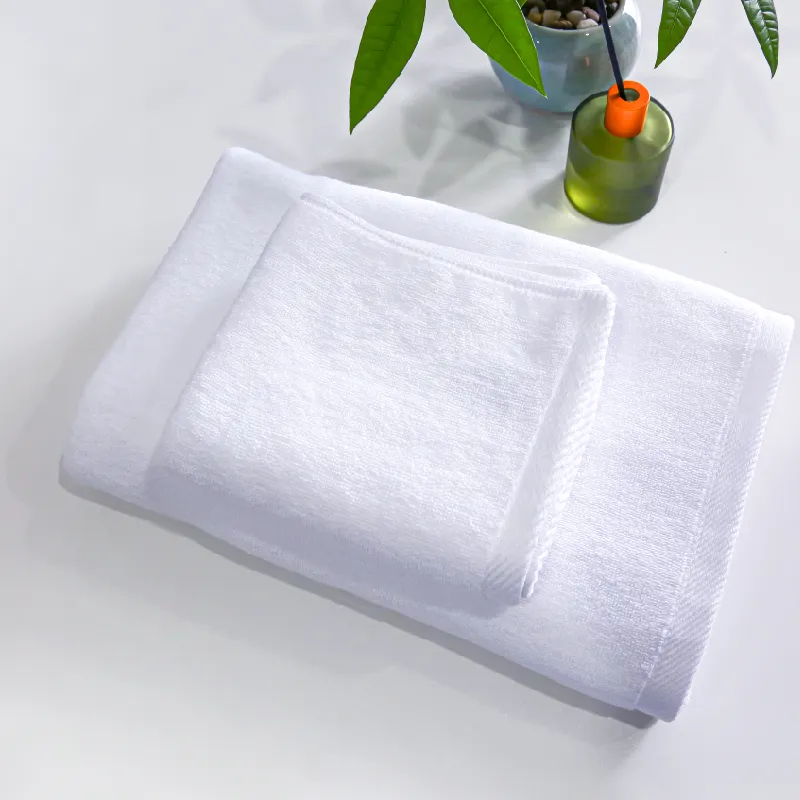
Ensuring Trust: Certifications, Support, and Logistics
For B2B textile procurement, trust is built on verifiable quality, reliable logistics, and unwavering customer support. Our commitment to these pillars ensures a seamless partnership.
Authoritativeness and Certifications:
- OEKO-TEX Standard 100: All our products, including the various different types of towels material used, are certified to OEKO-TEX Standard 100, guaranteeing they are free from harmful substances and safe for human use.
- ISO 9001:2015 Certified Manufacturing: Our production facilities adhere to the highest international standards for quality management, ensuring consistent product excellence.
- Third-Party Lab Testing: We regularly conduct and provide results from independent lab tests for absorbency, colorfastness, tensile strength, and drying performance to AATCC and ASTM standards.
- Years of Industry Experience: With over [X, insert company's actual number, e.g., 20] years in the textile industry, we have a proven track record of delivering high-quality B2B solutions to global clients, including leading hotel chains and healthcare groups.
Frequently Asked Questions (FAQ)
- Q: What are the kinds of towel materials available for commercial use?
- A: We offer a range of materials including 100% long-staple cotton (Egyptian, Pima), cotton/polyester blends for enhanced durability and quick-drying, bamboo for superior softness and absorbency, and microfiber (polyester/polyamide) for ultra-fast drying and cleaning efficiency. The best choice depends on specific application requirements and budget.
- Q: What is GSM and why is it important for different types of bath towels?
- A: GSM stands for Grams per Square Meter and is a key indicator of a towel's density and weight. Higher GSM (e.g., 600-900) generally means a thicker, more luxurious, and absorbent towel, often used in high-end hospitality. Lower GSM (e.g., 300-450) indicates a lighter, faster-drying towel, suitable for high-volume use like gyms or healthcare. Choosing the right GSM balances comfort, performance, and operational costs.
- Q: How do your quick-dry towels achieve their superior performance?
- A: Our quick-dry towels leverage a combination of specialized fiber structures (e.g., hollow-core cotton, fine microfibers) and advanced hydrophilic finishing treatments. These technologies increase the surface area for evaporation and enhance moisture-wicking capabilities, significantly reducing drying times by up to 30% compared to conventional towels.
- Q: What is the typical lead time for bulk orders?
- A: Standard lead times for bulk orders typically range from 4-8 weeks, depending on the volume, customization requirements, and current production schedule. For urgent requirements or very large projects, we recommend contacting our sales team directly for a precise timeline and potential expedited options.
- Q: What is your warranty policy for commercial towels?
- A: We offer a comprehensive warranty covering manufacturing defects and material integrity for up to [X, e.g., 1 year or 200 wash cycles] from the date of purchase under normal commercial use and care. Detailed warranty terms are available upon request from our customer support department.
- Q: How can I request custom sizing or branding for my order?
- A: Customization is a core service. Please contact our sales team with your specific requirements, including desired dimensions, GSM, color (Pantone codes if available), and high-resolution logo files for embroidery or Jacquard weaving. Our design and production teams will work closely with you to develop a tailored solution and provide prototypes for approval.
Logistics, Warranty, and After-Sales Support
We understand that reliable logistics and robust after-sales support are as crucial as product quality in B2B partnerships. Our commitment ensures peace of mind throughout the entire procurement lifecycle.
- Lead Time & Fulfillment: Our optimized global supply chain ensures efficient order processing and timely delivery. Standard lead times are 4-8 weeks, with expedited options available for urgent requirements. We manage end-to-end logistics, from manufacturing to your specified delivery point.
- Warranty Commitments: All our commercial towels come with a comprehensive warranty against manufacturing defects and premature wear under standard commercial laundering conditions. We stand by the durability and performance claims of our products. Specific warranty terms are provided with each quotation.
- Customer Support & Technical Assistance: Our dedicated B2B support team is available to assist with product selection, technical specifications, order tracking, and any post-delivery inquiries. We provide expert advice on textile care and maintenance to maximize the lifespan of your investment.
- Quality Assurance: Beyond certifications, our internal QA processes involve multiple checkpoints, from raw material inspection to final packaging, ensuring every product batch meets our stringent quality benchmarks and your expectations.
Our mission is to forge long-term partnerships by delivering superior textile solutions backed by unparalleled service and technical expertise.
Conclusion and Authoritative References
The strategic selection of bath towels in a B2B context is a nuanced decision, impacting not only immediate costs but also long-term operational efficiency, brand perception, and client satisfaction. By understanding the intricate manufacturing processes, material science, and performance metrics discussed, procurement professionals can make informed choices that yield significant value. Investing in high-quality, technically advanced textiles is an investment in your organization's reputation and bottom line.
References:
- ISO (International Organization for Standardization). ISO 9001:2015 - Quality management systems - Requirements.
- OEKO-TEX International. Standard 100 by OEKO-TEX® - Certified products.
- American Association of Textile Chemists and Colorists (AATCC). Various test methods for textile properties.
- ASTM International. Standard Test Methods for Various Textile Materials.
- GOTS (Global Organic Textile Standard). Global Organic Textile Standard (GOTS) Version 6.0.
- Textile Exchange. Material Change Index (MCI) for Sustainable Fibers and Materials.
-
Natural Bamboo Sheets for Sensitive Skin ReliefNewsAug.22, 2025
-
Organic Cotton Bed Sheet Fabric Certification ExplainedNewsAug.22, 2025
-
Creating a Spa Day with Plush Waffle Bath RobesNewsAug.14, 2025
-
How to Cut Linen Maintenance Costs by 30% with Proper Polycotton IroningNewsAug.11, 2025
-
Elevating Comfort and Quality with the Right Bed LinenNewsJul.07, 2025
-
Bedding Essentials: From Percale Sheets to White Quilts, Finding Your Perfect Sleep HavenNewsJul.07, 2025
-
Choosing the Right Bedding for a Comfortable and Stylish BedroomNewsJul.07, 2025






